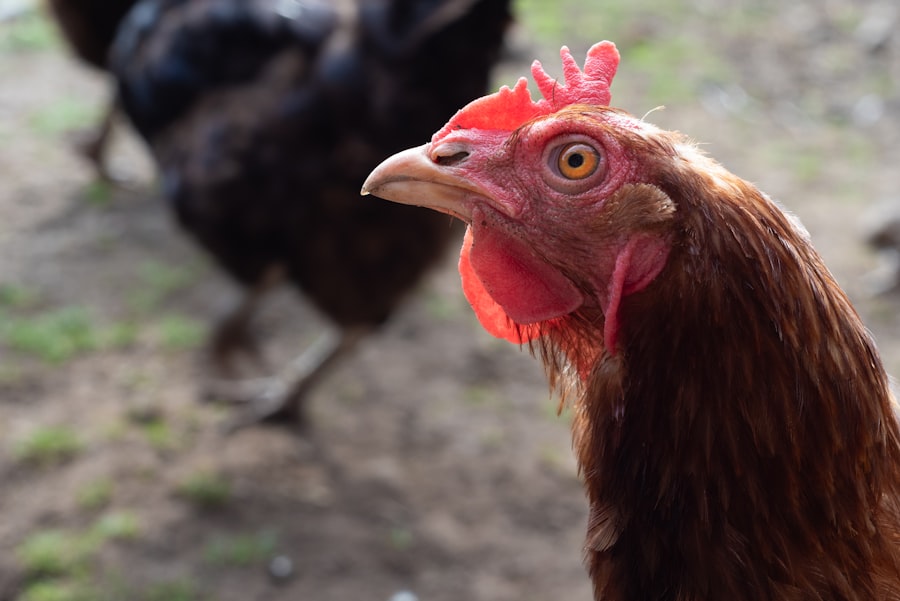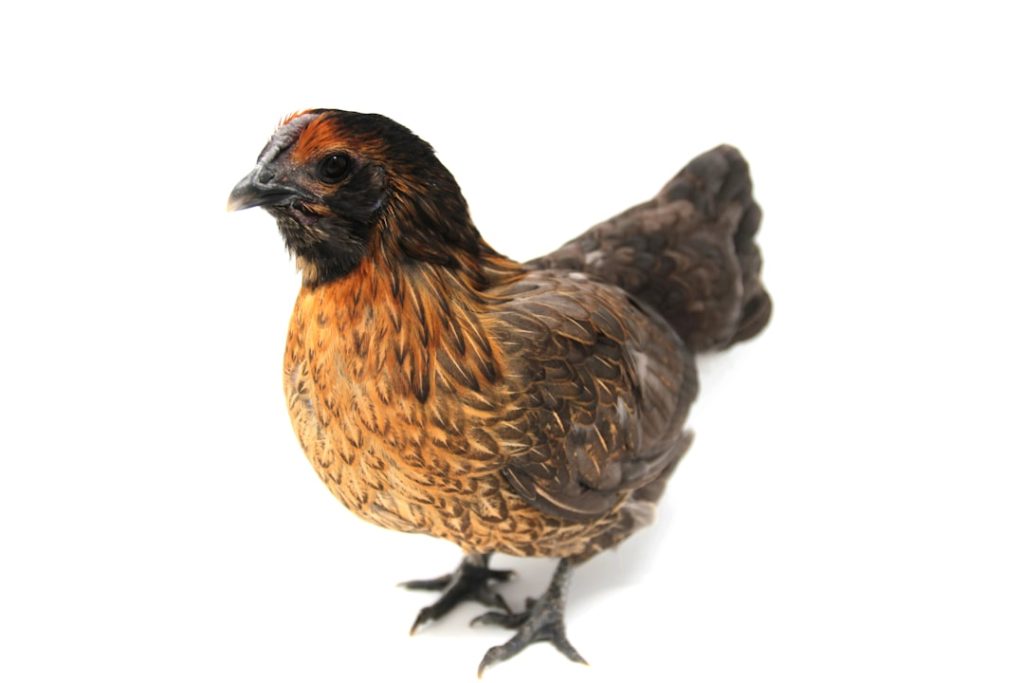When considering keeping chickens in urban or suburban areas, it is crucial to understand the local ordinances and regulations that govern such activities. These ordinances can vary widely from one municipality to another, so it is important to research and understand the specific rules that apply to your area. Some cities may have strict regulations regarding the number of chickens allowed, coop size and placement, and even the types of chickens that are permitted.
It is also important to be aware of any restrictions on slaughtering chickens or selling eggs. Violating these ordinances can result in fines or other legal consequences, so it is essential to be well-informed and compliant with local regulations. In addition to city ordinances, it is also important to be aware of any county or state regulations that may apply to keeping chickens.
Some areas may have specific agricultural zoning laws that dictate where chickens can be kept and under what conditions. It is also important to be aware of any environmental regulations that may apply, such as waste disposal and water usage. By understanding and complying with these regulations, you can ensure that you are keeping chickens in a legal and responsible manner.
Table of Contents
- 1 Zoning laws and restrictions
- 2 Health and safety considerations
- 3 Noise and nuisance regulations
- 4 Permits and licenses
- 5 Homeowners’ association rules
- 6 Legal implications of keeping chickens in urban and suburban areas
- 7 FAQs
- 7.1 What are the legal considerations for keeping chickens in your backyard?
- 7.2 Are there any restrictions on keeping chickens in residential areas?
- 7.3 What are the potential legal issues of keeping chickens in your backyard?
- 7.4 How can I find out if it’s legal to keep chickens in my backyard?
- 7.5 What steps can I take to ensure I am legally allowed to keep chickens in my backyard?
Key Takeaways
- Understanding local ordinances and regulations is crucial for keeping chickens in urban and suburban areas.
- Zoning laws and restrictions may limit the number of chickens allowed and the location of coops.
- Health and safety considerations, such as proper waste disposal and disease prevention, are important for keeping chickens.
- Noise and nuisance regulations may restrict the types of noises and odors that chickens can produce.
- Permits and licenses may be required to legally keep chickens in urban and suburban areas.
- Homeowners’ association rules may have additional restrictions on keeping chickens.
- Legal implications of keeping chickens in urban and suburban areas should be carefully considered to avoid potential fines or legal action.
Zoning laws and restrictions
Understanding Zoning Laws
Agricultural zoning laws may permit keeping chickens in some areas, while residential zoning laws may prohibit it in others. It is essential to research the specific zoning laws that apply to your property to determine whether keeping chickens is allowed.
Applying for a Variance or Permit
If keeping chickens is not typically allowed in your area, you may be able to apply for a variance or special permit. This process involves submitting an application to the local zoning board and demonstrating that keeping chickens will not negatively impact the surrounding area.
Complying with Zoning Laws
It is crucial to carefully follow the procedures for obtaining a variance or permit, as failing to do so can result in legal consequences. By understanding and complying with zoning laws and restrictions, you can ensure that you are keeping chickens in a manner that is legal and respectful of your community.
Health and safety considerations

When keeping chickens in urban or suburban areas, it is important to consider the health and safety implications for both the chickens and the surrounding community. Chickens can carry diseases such as salmonella, avian influenza, and Newcastle disease, which can pose a risk to human health. It is important to take appropriate measures to prevent the spread of these diseases, such as practicing good hygiene and providing proper veterinary care for the chickens.
Additionally, it is important to be aware of any local health regulations that may apply to keeping chickens, such as requirements for vaccinations or disease testing. In addition to health considerations, it is also important to ensure that keeping chickens does not pose a safety risk to the surrounding community. This may involve taking measures to prevent chickens from escaping their enclosure and causing traffic hazards, as well as ensuring that their coop is secure and well-maintained.
It is also important to consider the potential for predators such as raccoons or foxes, and take appropriate measures to protect the chickens from harm. By carefully considering these health and safety considerations, you can ensure that you are keeping chickens in a responsible and respectful manner.
Noise and nuisance regulations
One of the most common concerns associated with keeping chickens in urban or suburban areas is the potential for noise and nuisance issues. Roosters, in particular, are known for their loud crowing, which can be disruptive to neighbors. In some areas, there may be specific regulations that govern noise levels and nuisance behaviors associated with keeping chickens.
It is important to be aware of these regulations and take appropriate measures to minimize any potential disturbances. In addition to noise concerns, there may also be regulations regarding odors and waste management associated with keeping chickens. Proper waste disposal and coop maintenance are essential for preventing unpleasant odors and minimizing the risk of attracting pests such as flies or rodents.
By being proactive in addressing these concerns, you can help ensure that your neighbors are not negatively impacted by your decision to keep chickens.
Permits and licenses
In many urban and suburban areas, keeping chickens may require obtaining permits or licenses from the local government. These permits may be required for various aspects of chicken keeping, such as building a coop, keeping a certain number of chickens, or selling eggs. It is important to research the specific permit requirements that apply to your area and ensure that you obtain all necessary permits before starting your chicken-keeping venture.
Obtaining permits for keeping chickens typically involves submitting an application to the local government and paying any associated fees. The application process may also involve demonstrating that you have met certain requirements, such as providing a suitable coop and demonstrating compliance with health and safety regulations. By obtaining the necessary permits and licenses, you can ensure that you are keeping chickens in a legal and responsible manner.
Homeowners’ association rules

Reviewing HOA Regulations
In many suburban areas, homeowners’ associations (HOAs) have rules and regulations that govern various aspects of property use, including keeping animals such as chickens. It is essential to carefully review the HOA rules that apply to your property to determine whether or not keeping chickens is allowed. Some HOAs may have strict restrictions on keeping animals, while others may have specific guidelines for chicken keeping.
What to Do If Chickens Are Not Allowed
If your HOA has rules against keeping chickens, it may be possible to petition for a change in the rules or seek an exemption based on specific circumstances. This process typically involves submitting a request to the HOA board and demonstrating that keeping chickens will not negatively impact the community.
Seeking Approval
It is crucial to carefully follow the procedures outlined by the HOA and seek approval before proceeding with keeping chickens on your property.
Legal implications of keeping chickens in urban and suburban areas
There are several legal implications to consider when keeping chickens in urban or suburban areas. Violating local ordinances, zoning laws, or homeowners’ association rules can result in fines or other legal consequences. It is important to carefully research and understand the specific regulations that apply to your area and ensure that you are in compliance with all applicable laws.
In addition to local regulations, there may also be legal implications related to liability and insurance coverage. Keeping animals such as chickens on your property can increase your liability risk, so it is important to review your homeowner’s insurance policy and consider obtaining additional coverage if necessary. It is also important to take appropriate measures to prevent injuries or property damage related to chicken keeping, such as ensuring that their coop is secure and well-maintained.
By carefully considering these legal implications and taking appropriate measures to comply with local regulations, you can ensure that you are keeping chickens in a legal and responsible manner. This will help minimize the risk of legal issues and ensure that you are respectful of your community while enjoying the benefits of chicken keeping.
If you’re considering keeping chickens in your backyard, you may also be interested in learning about converting a shed into a chicken coop. This article from Poultry Wizard discusses the process of converting a shed into a suitable living space for your feathered friends. Check it out here.
FAQs
What are the legal considerations for keeping chickens in your backyard?
In many areas, there are local ordinances and regulations that dictate whether or not you can keep chickens in your backyard. These regulations may cover issues such as the number of chickens allowed, coop requirements, and distance from neighboring properties.
Are there any restrictions on keeping chickens in residential areas?
Yes, many residential areas have restrictions on keeping chickens, such as limits on the number of chickens allowed, coop size and placement, and noise regulations. It’s important to check with your local government or homeowners’ association to understand the specific regulations in your area.
What are the potential legal issues of keeping chickens in your backyard?
Potential legal issues of keeping chickens in your backyard may include violating local ordinances, noise complaints from neighbors, and health and safety concerns. It’s important to be aware of and comply with the regulations in your area to avoid legal issues.
How can I find out if it’s legal to keep chickens in my backyard?
To find out if it’s legal to keep chickens in your backyard, you can check with your local government or zoning department to understand the regulations in your area. You can also review any homeowners’ association rules that may apply to your property.
What steps can I take to ensure I am legally allowed to keep chickens in my backyard?
To ensure you are legally allowed to keep chickens in your backyard, it’s important to research and understand the local regulations and ordinances that apply to your area. This may include obtaining any necessary permits, complying with zoning requirements, and addressing any concerns from neighbors or local authorities.
Meet Walter, the feathered-friend fanatic of Florida! Nestled in the sunshine state, Walter struts through life with his feathered companions, clucking his way to happiness. With a coop that’s fancier than a five-star hotel, he’s the Don Juan of the chicken world. When he’s not teaching his hens to do the cha-cha, you’ll find him in a heated debate with his prized rooster, Sir Clucks-a-Lot. Walter’s poultry passion is no yolk; he’s the sunny-side-up guy you never knew you needed in your flock of friends!







